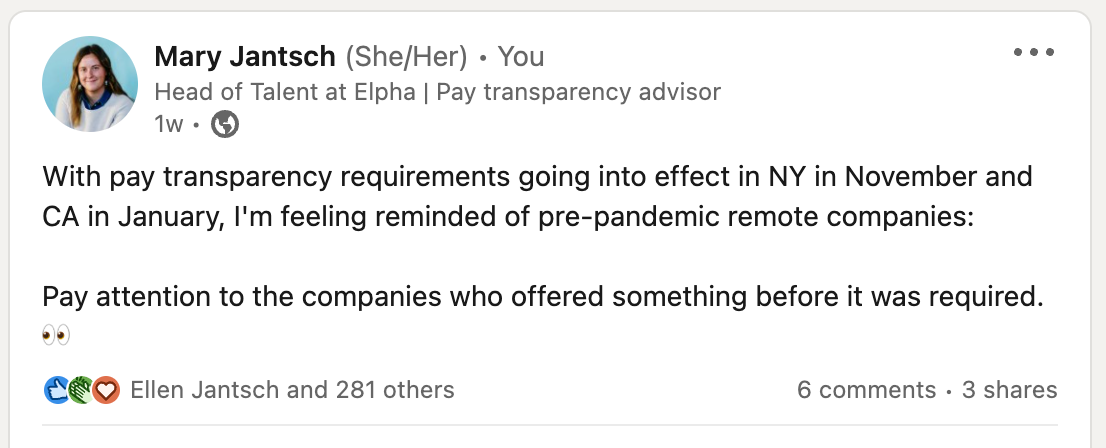002: How to create a compensation philosophy (and why you should)
This post is about how (and why) you need a compensation philosophy, not about old philosophers.
Tick, tick, tick, tick…do you hear it? We’re 18 days away from New York City’s pay transparency law going into effect.
For early-stage startups, compensation work is often done backwards because you're building as you grow. It’s time to hire your first engineer, product manager, recruiter, etc. and so you pull up market rates to inform a salary range and start interviewing.
Then, that system breaks and pay gaps grow.
But, here’s the thing, a not insignificant number of companies are needing to do this work at the very same time:
Just like the “remote best practices” highlight reels of 2019, I’m hoping for a collective shift and sharing of knowledge that escalates this work at a higher rate.
18 days is not a lot of time to implement pay transparency - when I work with early stage startups to roll this out, we minimally scope out 3 months for the work and create a roadmap for future updates (just like any product cycle).
But, if I had to cram it into 18 days there is one step I would absolutely not skip: Defining your Compensation Philosophy.
Read on below for:
What is a Compensation Philosophy?
Examples of real Compensation Philosophies from startups
Questions to ask to outline your Compensation Philosophy
Thanks for being here ✌️,
Mary
What is a Compensation Philosophy?
If you have employees, you probably have a Compensation Philosophy already.
In your job descriptions, you may have statements like “we pay 70th percentile” or “we don’t adjust pay based on location”. These are compensation decisions in action that are based on your company’s philosophy on pay. You just need to do the work to write it out.
A Compensation Philosophy is an explicit overview of a company’s views and decisions about total compensation.
Having a Compensation Philosophy outlined and agreed upon keeps your Career Framework consistent and systematic while also giving your team a shared understanding of how compensation decisions are made.
Keep reading with a 7-day free trial
Subscribe to Damn Good Job to keep reading this post and get 7 days of free access to the full post archives.





